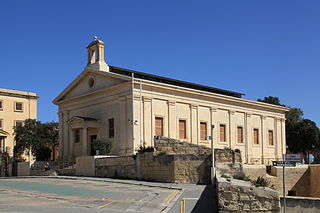
A stock market, equity market or share market is the aggregation of buyers and sellers of stocks, which represent ownership claims on businesses; these may include securities listed on a public stock exchange, as well as stock that is only traded privately. Examples of the latter include shares of private companies which are sold to investors through equity crowdfunding platforms. Stock exchanges list shares of common equity as well as other security types, e.g. corporate bonds and convertible bonds.

A market maker or liquidity provider is a company or an individual that quotes both a buy and a sell price in a financial instrument or commodity held in inventory, hoping to make a profit on the bid-offer spread, or turn. The U.S. Securities and Exchange Commission defines a "market maker" as a firm that stands ready to buy and sell stock on a regular and continuous basis at a publicly quoted price.

The Depository Trust & Clearing Corporation (DTCC) is an American post-trade financial services company providing clearing and settlement services to the financial markets. It performs the exchange of securities on behalf of buyers and sellers and functions as a central securities depository by providing central custody of securities.

A stock trader or equity trader or share trader is a person or company involved in trading equity securities. Stock traders may be an agent, hedger, arbitrageur, speculator, stockbroker. Such equity trading in large publicly traded companies may be through one of the major stock exchanges, such as the New York Stock Exchange or the London Stock Exchange, which serve as managed auctions for stock trades. Stock shares in smaller public companies are bought and sold in over-the-counter (OTC) markets.

The Nairobi Securities Exchange (NSE) was established in 1954 as the Nairobi Stock Exchange, based in Nairobi the capital of Kenya. It was a voluntary association of stockbrokers in the European community registered under the Societies Act in British Kenya.
In finance, securities lending or stock lending refers to the lending of securities by one party to another. The terms of the loan will be governed by a "Securities Lending Agreement", which requires that the borrower provides the lender with collateral, in the form of cash or non-cash securities, of value equal to or greater than the loaned securities plus agreed-upon margin. Non-cash refers to the subset of collateral that is not pure cash, including equities, government bonds, convertible bonds, corporate bonds, and other products. The agreement is a contract enforceable under relevant law, which is often specified in the agreement.
A custodian bank, or simply custodian, is a specialized financial institution responsible for safeguarding a firm's or individual's financial assets and is not engaged in "traditional" commercial or consumer/retail banking such as mortgage or personal lending, branch banking, personal accounts, Automated Teller Machines (ATMs) and so forth. The role of a custodian in such a case would be to:
An order is an instruction to buy or sell on a trading venue such as a stock market, bond market, commodity market, financial derivative market or cryptocurrency exchange. These instructions can be simple or complicated, and can be sent to either a broker or directly to a trading venue via direct market access. There are some standard instructions for such orders.
Demat account number is quoted for all transactions to enable electronic settlements of trades to take place. Every shareholder will have a Dematerialized account for the purpose of transacting.
Sell side is a term used in the financial services industry. The three main markets for this selling are the stock, bond, and foreign exchange market. It is a general term that indicates a firm that sells investment services to asset management firms, typically referred to as the buy side, or corporate entities. One important note, the sell side and the buy side work hand in hand and each side could not exist without the other. These services encompass a broad range of activities, including broking/dealing, investment banking, advisory functions, and investment research.
Market manipulation is a type of market abuse where there is a deliberate attempt to interfere with the free and fair operation of the market and create artificial, false or misleading appearances with respect to the price of, or market for, a product, security, commodity or currency.

The Malta Stock Exchange, originally known as the Casino della Borsa, is the stock exchange of the island nation of Malta. Since being set up in 1992, the Exchange has been key to the raising of capital for the private sector through the issue of corporate bonds and equity while virtually all the national debt of Government of Malta has been issued in the form of Malta Government bonds and treasury bills that are listed and traded on the secondary market.

In finance, a dark pool is a private forum for trading securities, derivatives, and other financial instruments. Liquidity on these markets is called dark pool liquidity. The bulk of dark pool trades represent large trades by financial institutions that are offered away from public exchanges like the New York Stock Exchange and the NASDAQ, so that such trades remain confidential and outside the purview of the general investing public. The fragmentation of electronic trading platforms has allowed dark pools to be created, and they are normally accessed through crossing networks or directly among market participants via private contractual arrangements. Generally dark pools are not available to the public, but in some cases they may be accessed indirectly by retail investors and traders via retail brokers.

The Ukrainian Exchange is one of the largest stock exchanges in Ukraine. The exchange is located in Kyiv and is the main trading venue for equities and derivatives in the country.
Flash trading, otherwise known as a flash order, is a marketable order sent to a market center that is not quoting the industry's best price or that cannot fill that order in its entirety. The order is then flashed to recipients of the venue's proprietary data feed to see if any of those firms wants to take the other side of the order.
The United States of America v. Jerome O'Hara and George Perez is a federal court case for the ongoing trial of Jerome O'Hara and George Perez, two computer programmers who previously worked for Bernard L. Madoff Investment Securities LLC (BLMIS) until the arrest of the company's chairman, Bernard Madoff, on December 11, 2008.

An order matching system or simply matching system is an electronic system that matches buy and sell orders for a stock market, commodity market or other financial exchange. The order matching system is the core of all electronic exchanges and are used to execute orders from participants in the exchange.
In finance, a dividend future is an exchange-traded derivative contract that allows investors to take positions on future dividend payments. Dividend futures can be on a single company, a basket of companies, or on an Equity index. They settle on the amount of dividend paid by the company, the basket of companies, or the index during the period of the contract.

Securities market participants in the United States include corporations and governments issuing securities, persons and corporations buying and selling a security, the broker-dealers and exchanges which facilitate such trading, banks which safe keep assets, and regulators who monitor the markets' activities. Investors buy and sell through broker-dealers and have their assets retained by either their executing broker-dealer, a custodian bank or a prime broker. These transactions take place in the environment of equity and equity options exchanges, regulated by the U.S. Securities and Exchange Commission (SEC), or derivative exchanges, regulated by the Commodity Futures Trading Commission (CFTC). For transactions involving stocks and bonds, transfer agents assure that the ownership in each transaction is properly assigned to and held on behalf of each investor.









